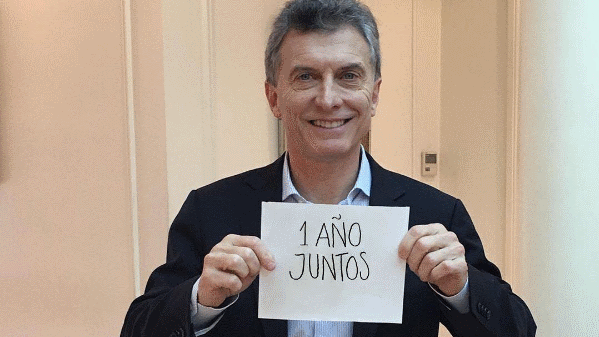A Big Year for Macri's Argentina
Mauricio Macri got off to a quick start in his first year as Argentine president but in 2017 we will see if he can keep the reform momentum going...

Macri’s early months as president were well received by investors, who applauded his strident attempts to reform Argentina’s sclerotic economy, and voters who wanted a change. However, one year on and the economy is struggling, which has caused some investors to doubt Macri’s reform programme and led to his voter approval falling to around 50% from a high of 71%. The first casualty was finance minister, Alfonso Prat-Gay, who was removed late last year.
Stubborn recession
He may have lost his job but Prat-Gay engineered many of Macri’s key successes so far. He played a role in Argentina’s return to international capital markets, re-floating the peso, the revamp of the financial data agency and the tax amnesty for Argentine offshore funds. Yet he paid the price for a recession that has lasted longer than he predicted. He has struggled to battle Argentina’s historic bugbear of inflation while the move to cut the fiscal deficit made slower progress than expected.
"The decision to replace Prat-Gay could well have been bid to create a scapegoat in the run up to important mid-term elections…"
But in the end what did for Prat-Gay may not have been economics. Given that his party lacks control of either house, Macri is vulnerable politically and relies on dealmaking to pass key legislation. The decision to replace Prat-Gay could well have been bid to create a scapegoat in the run up to important mid-term elections in October this year.
Economic recovery
In policy terms little looks set to change. Prat Gay’s former ministry has been split into two. Luis Caputo becomes finance minister, while Nicolas Dujovne will head up a new treasury ministry. As for Prat-Gay, he may well feel he was unlucky not to get a bit more time. Edward Glossop, Latin America Economist for London-based consultancy Capital Economics, believes Argentina’s economy is set to recover. “The relatively shallow 0.2% q/q contraction in Argentine GDP in Q3 supports our view that the recession is close to an end. We think the economy will return to positive growth in 2017, but the recovery will be slow-going.”
That economic pick-up may be too late for Prat-Gay but it could well be enough for Macri at the mid-term elections. Investors will be watching closely as a strong showing at the elections would give Macri a mandate to carry on with his reform agenda.